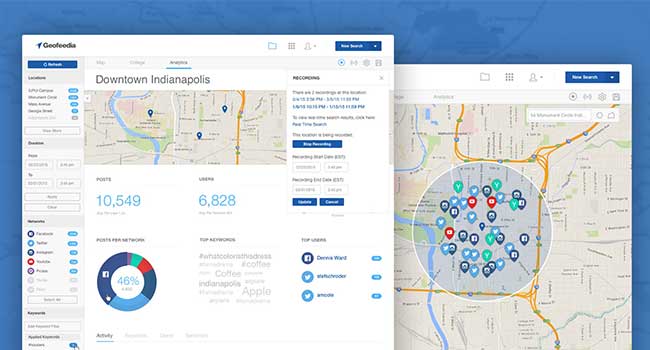
Twitter, Facebook cut off Data Access for Social Media Surveillance Startup
According to a study by the American Civil Liberties Union, major social networks including Twitter, Facebook and Instagram have recently provided user data access to Geofeedia, a location-based social media surveillance system used by government offices, law enforcement, private security firms and others.
It has been reported that law enforcement agencies use the social media surveillance tool, secretly, despite social media sites insisting that users’ data was not to be used for surveillance purposes.
ACLU noted in their post that, “Neither Facebook nor Instagram has a public policy specifically prohibiting developers from exploiting user data for surveillance purposes. Twitter does have a ‘longstanding rule’ prohibiting the sale of user data for surveillance as well as a Developer Policy that bans the use of Twitter data ‘to investigate, track or surveil Twitter users.’”
On Tuesday, after the report was published, Twitter and Facebook (which owns Instagram) made some immediate changes in response to the findings. Twitter announced that it would, “immediately suspend Geofeedia’s commercial access to Twitter data.”
Facebook has also suspended Geofeedia’s access to user data as well. A spokesperson told TechCrunch that Geofeedia only had access to users’ posts that were set to public view and its access was “subject to the limitations of the Platform Policy.” He also said that if a developer uses Facebook APIs in an unauthorized way, they would take swift action to stop the relationship.
Facebook’s platform policy says that developers are not permitted to “sell, license or purchase any data obtained” from Facebook or its services. They also cannot transfer data they got from Facebook to any data brokers, or put hat data into a search engine or directory without the social network’s explicit permission.
ACLU’s report showed evidence specific to the Baltimore Protests following the verdict of Freddie Gray showing that the police department had used the data from Geofeedia to monitor and surveil the unrest, sometimes using the data to run through facial recognition software or to make arrests.
Geofeedia released a statement saying, “We are committed to free speech and civil liberties. Also support a balanced approach with our technology.”